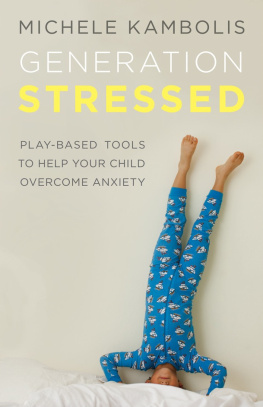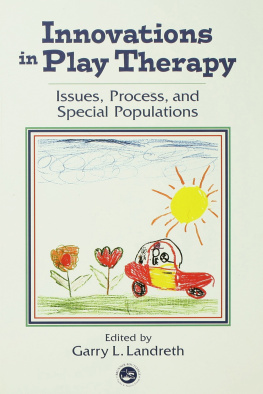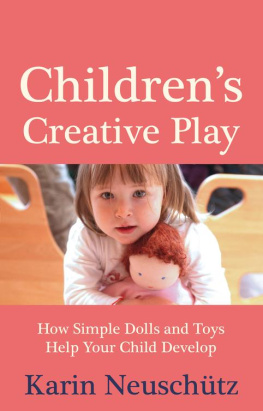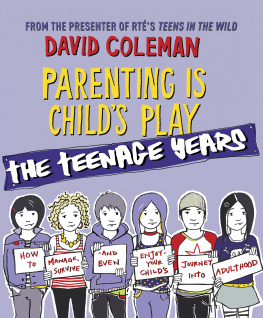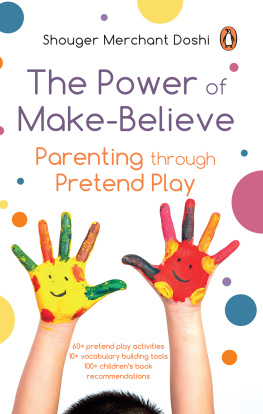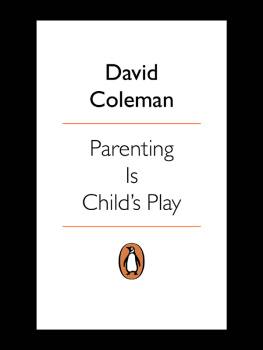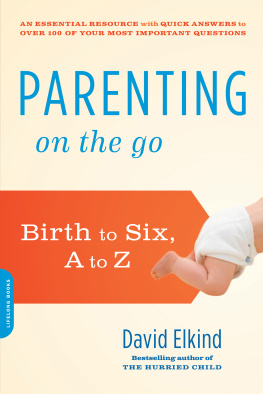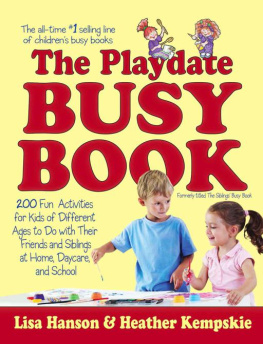NEW YORK UNIVERSITY PRESS
New York
www.nyupress.org
2016 by New York University
All rights reserved
References to Internet websites (URLs) were accurate at the time of writing. Neither the author nor New York University Press is responsible for URLs that may have expired or changed since the manuscript was prepared.
ISBN : 978-0-8147-6051-2 (hardback)
ISBN : 978-0-4798-6629-8 (paperback)
For Library of Congress Cataloging-in-Publication data, please contact the Library of Congress.
New York University Press books are printed on acid-free paper, and their binding materials are chosen for strength and durability. We strive to use environmentally responsible suppliers and materials to the greatest extent possible in publishing our books.
Manufactured in the United States of America
10 9 8 7 6 5 4 3 2 1
Also available as an ebook
Mommy! Can I pleeeeease have a playdate with Jack? A playdate? I know what she means, but where did my five-year-old daughter get this language?
Okay, but when and where? I ask.
At our house. I want him to see my house.
Jacks mother and I discuss the matter at pickup from kindergarten and decide that next week could work for both of us. She already has my e-mail address from the contact information, a list that was created at the beginning of the school year by the classroom parents who are in charge of communicating teacher requests. A few days later I receive an e-mail from Jacks mother suggesting possible dates and times for this playdate. Arrangements are made.
A week later, on a Saturday, my daughter wakes up frantic to pick out her outfit for this playdate. She is only five years old, but seems to have a sense of urgency, which she must get from me, about having company over to the house. She begins to clean her room. I dont even have to mention it to her. She makes up her bed and carefully places toys in a row against the back wall of her bedroom almost like a store display. Taking her cue, I become increasingly anxious and start cleaning the house. The playdate is about to begin.
Where did playdates come from? And what do they mean to parents who organize them? As a mother with small children and as a sociologist, I couldnt help but begin to ask myself these questions. My previous research on Caribbean nannies, who arrange playdates among the children in their care, increased my desire to delve deeper into the meaning of the playdate.
After attending and hosting dozens of playdates and interviewing parents and teachers as part of my research about playdates, I began noticing the patterns of the playdate as an event. There was always preparation involved, whether preparing food for a private playdate at someones home or packing a stroller for a playdate at a public park or zoo trip. Playdates seemed to follow a script, whereby parents and caregivers reprimanded children in a much lower tone than I would imagine in the private home, using the threat of having to leave the playdate for bad behavior, and having some intervention or activity on hand when two or more children began fighting or arguing, and it all ended with a tantrum or prolonged stream of tears when it was time to say good-bye and leave. The standard playdate blueprint also included more detailed nuances, nannies using playdates to combat the isolation they feel as domestic workers in the private sphere of someone elses home, and both nannies and parents separately using the opportunity to network among themselves for future employment.
I also began to notice that playdates tended to happen with people of the same social classes, races, and ethnicities. Nannies typically had playdates with other nannies of similar ethnic or racial background, and parents held playdates with other parents who were in similar socioeconomic situations. This is what intrigued me the most, and I questioned whether my initial observation was true. Were social classes meeting up only with one another, thereby reproducing or securing their own social class status? If so, how can this be, if the playdate is directed by a child in the first place (as many parents will have you believe), and this child has not perhaps quite grasped class and economic differences as completely as their adult caretakers? Also, what are the gender dynamics involved when initiating playdates? Did fathers have playdates with their children in the same way that mothers did?
In this book, I show how some parents include and exclude families through the playdate experience, thereby aligning themselves with like-minded parents who may further the social and life chances of their young children and themselves. Some parents reject playdates as something that other types of parents do. I also show how the playdate can help new parents sort through their new lives and responsibilities, from breastfeeding to simply caring for an infant who cannot actively interact through play. This book lays bare the logistics of organizing a playdate, how parents choose families to have playdates, why parents believe they have transitioned from simply having their children play down the street with neighbors to the more formally organized playdate, how playdates can begin as early as in infancy, and typically end toward middle school, and how childrens birthday parties become a glamorized form of playdates. In addition, I show how childcare providers have adopted the language of the playdate on behalf of their employers, thus reinforcing the class and cultural capital of children.
It is through the preparation for this book and many playdates that I came to appreciate the variety of ways we parent our children and perhaps think of them as somehow more fragile than our parents might have thought of us. Many questions arise. Are we serving our children or hindering them through the playdate? Are playdates something that only economically privileged people have in order to reproduce their class? Are working-class folks holding playdates in the same way as their more affluent counterparts? Do fathers and mothers engage in the playdate experience similarly? Do playdates reproduce gender norms by encouraging boys to play with boys and girls to play with girls in particular ways? In an age when instant technology is organizing our lives in almost every regard with the iPhone and other smartphones, is the playdate simply a by-product of having to schedule time for children to play with friends? While these are not questions that can be answered concisely, this book attempts to answer them through interviews with mothers, fathers, schoolteachers, and childcare providers from around New York City. The playdate experience is not only a New York phenomenon. We can track playdates in suburban areas and across the United States as well. However, New York offers a site where access to public transportation, perceptions of danger, and class, race, and ethnic diversity are so prevalent that the playdate has come to be negotiated in specific ways. It makes for a good case study as it epitomizes the international conversation about the social exclusion and social class reproduction that occur during the playdate. More importantly, it is a case study in how playdates are a widespread construction of twenty-first-century parenting and its anxieties about social class.


